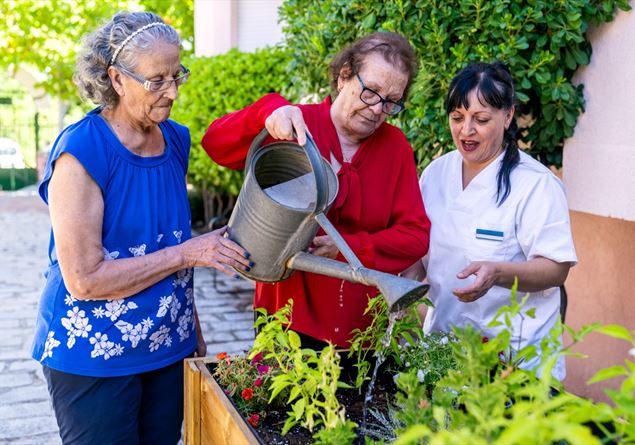On the occasion of the XIV world month Alzheimer and the XXXII World Day Alzheimer, Federation of Alzheimer Italy presents the world report Alzheimer 2025 in our country, drawn up by ADI – Alzheimer’s Disease International. The document turns on the spotlight on a theme still little considered: Rehabilitation in dementia. Through analysis of experts and cases study, it shows how this allows people with dementia to maintain cognitive functions, autonomy and social participation longer, prolonging their stay at home and improving their quality of life and that of the caregiver. It is not only a question of dignity, but also of economic sustainability: preserving people’s abilities means delaying the entry into the structure and reducing hospital hospitalizations, with significant savings for health and social systems.
Despite these evidence, in Italy and in the world access remains limited and fragmentary. The report therefore invites you to consider Rehabilitation as a right of people with dementia and integrate it into the national plansnali for dementia, in line with the UN Convention on the rights of people with disabilities and with the global public health action plan on WHO dementia.
Italy: new guidelines and open challenges
The international document converges with the guidelines for the diagnosis and treatment of dementia drawn up in Italy by the Istituto Superiore di Sanità, which confirm the value of rehabilitation and psychosocial interventions as an integral part of the assistance alongside drugs. They recommend in fact Rehabilitation and cognitive training, capable of supporting memory, attention and executive functions, in particular in the initial stages. They also underline the importance of physical exercise, useful for maintaining health and slowing down cognitive decline: From simple daily walks to sweet gymnastics, from exercise bike to muscle reinforcement and balance exercises. Among the effective approaches there are also music therapy, reminiscence therapy – that through photographs, objects, music or stories stimulates memory and memories and strengthens personal identity – and other creative and social activities, which favor psychological well -being, reduction of agitation and maintenance of relationships. At the same time, The guidelines invite not to propose practices without scientific evidence such as ketogenic diets, supplements or multivitamins in the absence of specific documented deficiencies or acupuncture, clarifying that these interventions do not bring benefits and risk diverting resources from what is truly useful and safe.
The Alzheimer Federation, together with the permanent table on dementia, is working onUpdate of the National Dementia Plan, which will necessarily have to take into account these guidelines. The theme of rehabilitation must be included in the new plan, ensuring that this type of interventions is an integral part of the care and assistance paths – says Mario Possenti, secretary general of the Federation – a real cultural change is needed: We must stop thinking that life ends with the diagnosis of dementia. A person can still live for a long time, fullly and with dignity, if he has access to effective and personalized support, capable of enhancing the residual skills and accompanying the family. In a country where the overall costs of dementia exceed 23 billion euros per year, of which over 60% borne by familiesinvesting in rehabilitation and support is not only an ethical duty, but also a strategic and sustainable choice for our future.
In this sense, two key challenges to face for Italy will be the development of teleriability throughout the national territory, To facilitate access to support programs to those who live away from specialized centers and those who have more difficulty moving from home, and adequate training on dementia to rehabilitation therapists.
“Rehabilitation returns a sense of identity and intentionality: even the smallest progress can transform a life” says Paola Barbarino, CEO of Alzheimer’s Disease International. “Too often we hear that, just after the diagnosis of dementia, a person is advised to go home and put in order to end the end of life. But With the right support you can live well for many years after diagnosis. It is time for health systems to offer rehabilitation paths for dementia, as happens for other chronic conditions ».


